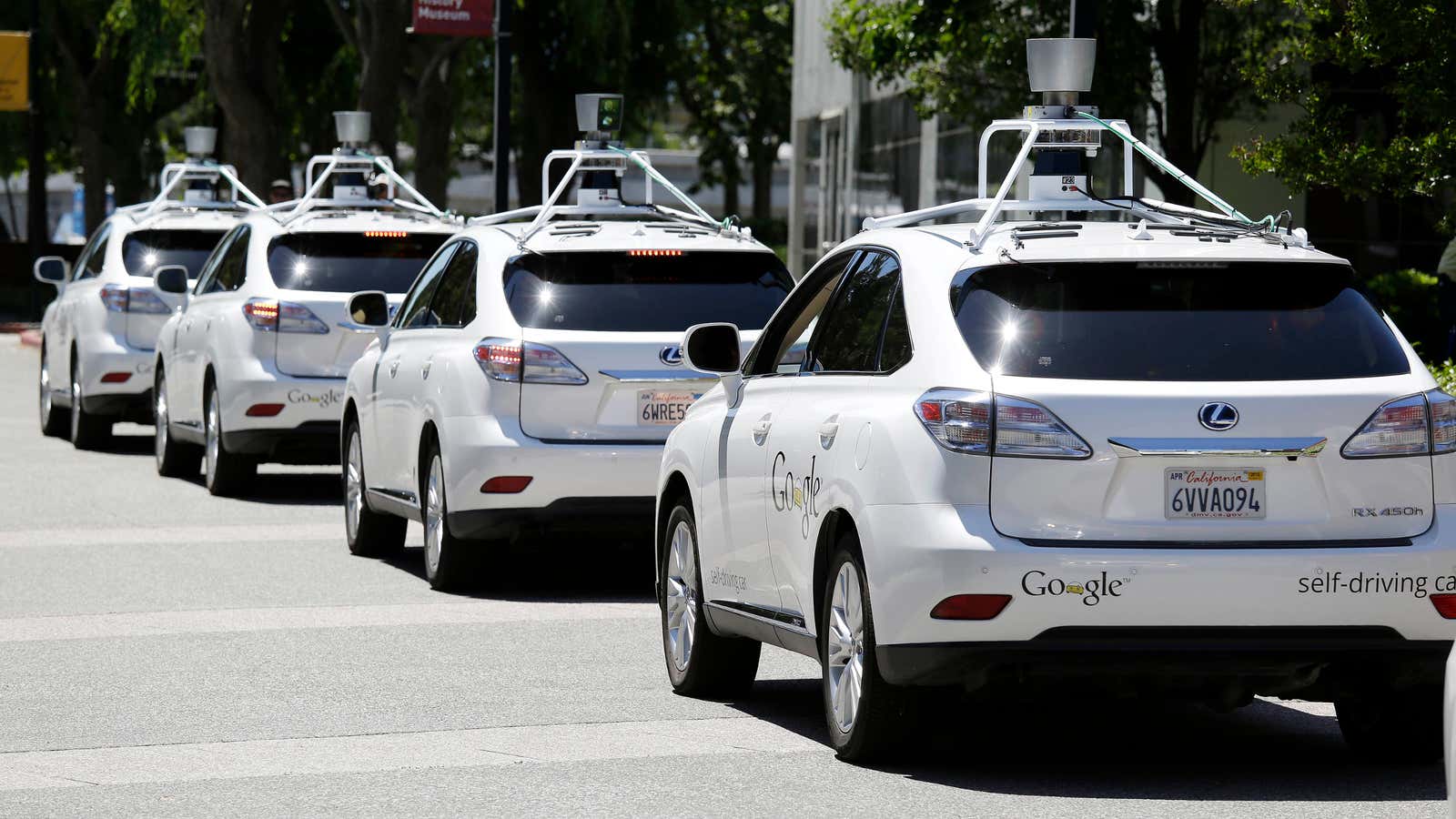Peter Thiel, the technology financier, has a funny way of defining a monopoly—”the kind of company that is so good at what it does that no other firm can offer a close substitute.” While not exactly useful for consumers, it’s good advice for entrepreneurs: Strive for monopoly power, he says. Otherwise, competition drains away your profits.
Google is a monopoly, Thiel says, just as Microsoft once was. Now we face the question: Is Uber?
I’ve argued before that the car-service platform has developed as its primary product something of a commodity business: That’s why Uber has to be so aggressive about under-cutting its competitors’ fares while still guaranteeing driver wages, moves that put pressure on its profit margins, just as Thiel worries. The technology behind matching mobile customers with cars just isn’t that difficult to implement at scale—at least, not difficult enough to keep competitors out.
Of course, this isn’t to diminish Uber’s successes or the strength of its network: Like Facebook in the social world, it is the dominant platform, in part because of momentum—it has the most regular users, the most cars and the most brand visibility. Its strategy has been to ride that early lead to a dominant position in the market. And so far, so good, even if regulatory battles are boosting its burn rate.
But now it may face an even larger challenge: Bloomberg reports that Google, an investor in Uber, is developing its own car-sharing app—designed to take advantage of the company’s development of self-driving car technology—and has proceeded far enough that the company’s top lawyer is considering stepping down from Uber’s board.
While a cryptic tweet and a Wall Street Journal story cast doubt on whether Google is all that close to launching an Uber competitor, it’s likely not coincidental that Uber is going for broke and hiring an entire lab of Carnegie Mellon engineers and scientists to develop its own self-driving cars.
Uber CEO Travis Kalanick has talked about putting self-driving cars on the Uber platform before, though he walked back those comments in the face of criticism from the human drivers he still needs to keep his business afloat until we reach a driverless utopia. But even Google is years away from street-legal robot cars—for one thing, they just don’t handle adverse weather conditions all that well.
In the meantime, however, there’s no reason Google couldn’t launch Google Cars to start building out its own network. It surely has the capital and the technical expertise to do so, and with so many Google users in the world, it has a waiting market.
But perhaps Google’s executives realize that, using Peter Thiel’s logic, the car service business isn’t that profitable because it’s so competitive. Perhaps Google and Uber alike feel the real killer app to protect a car service’s juicy profit margins is ditching the labor altogether and making automatic cars—a truly difficult product to substitute—even if putting a fleet on the road is massive capital investment. Pity the poor drivers.
